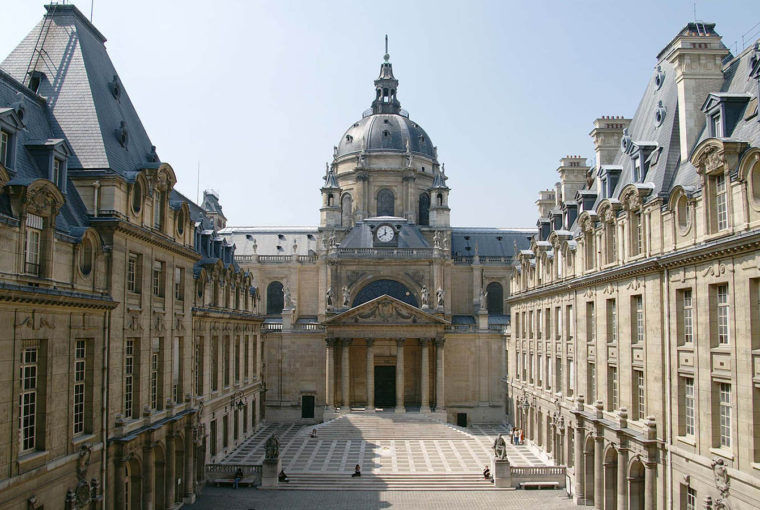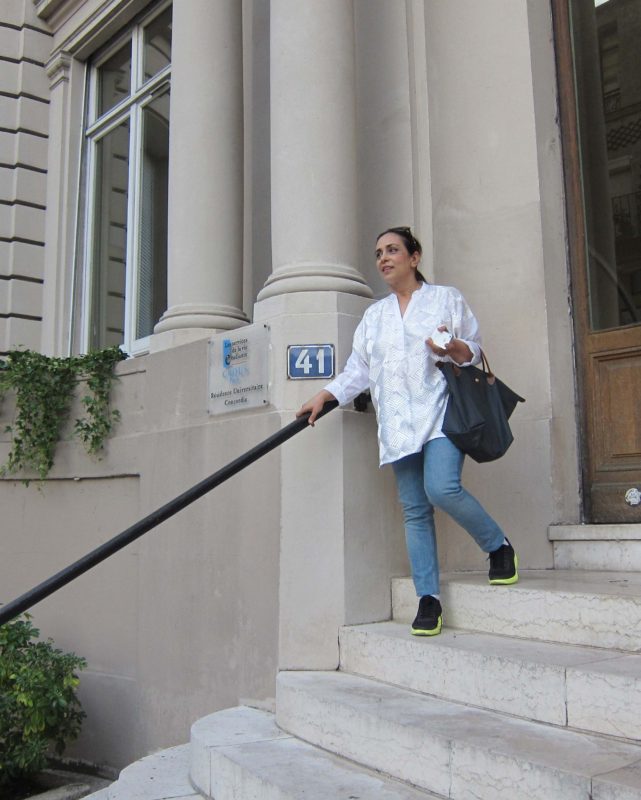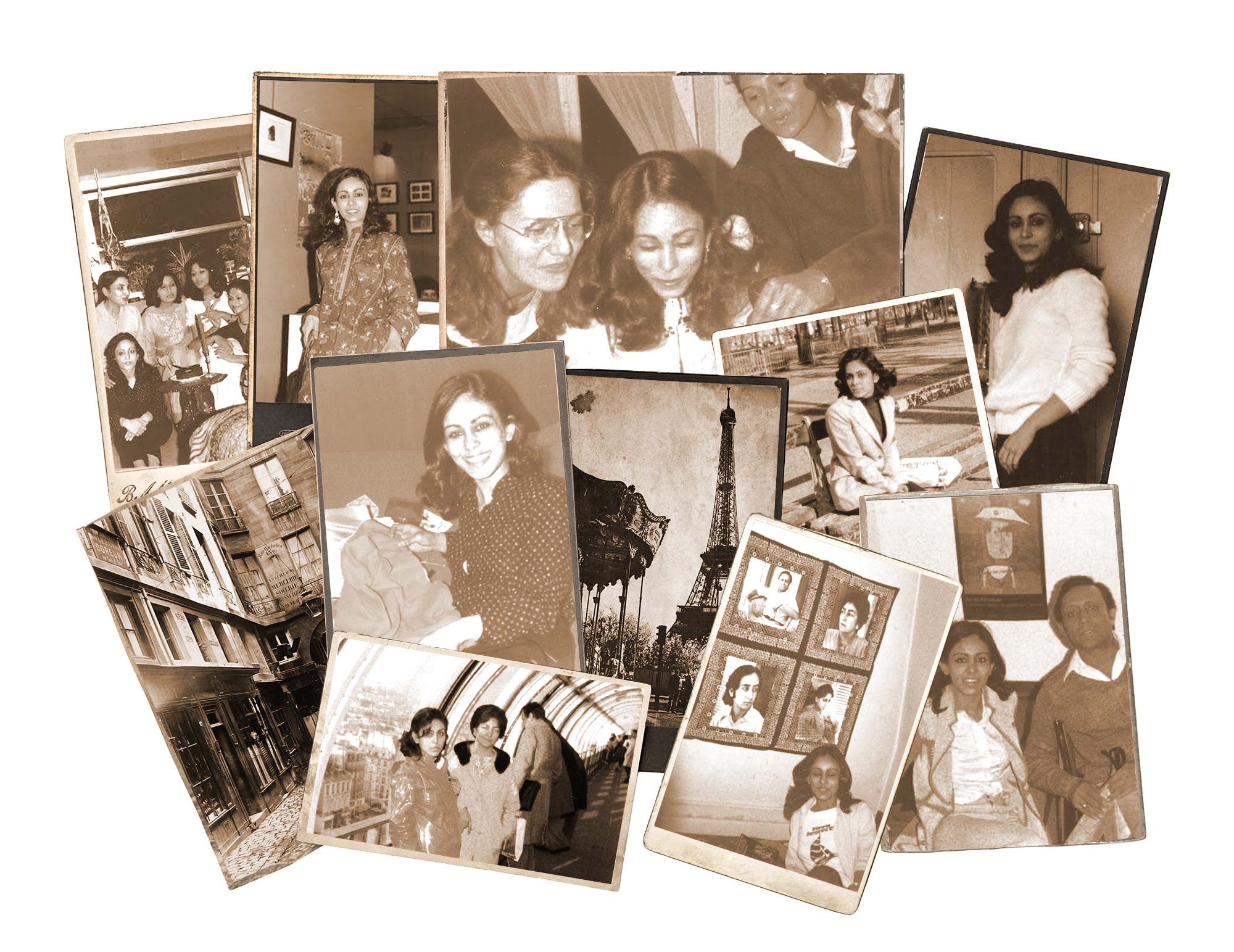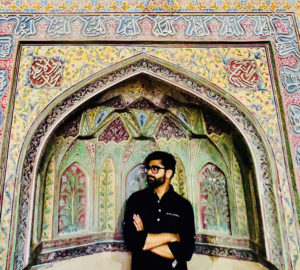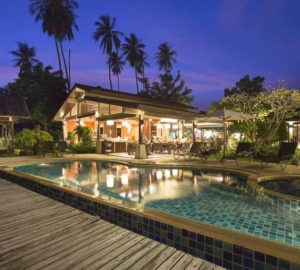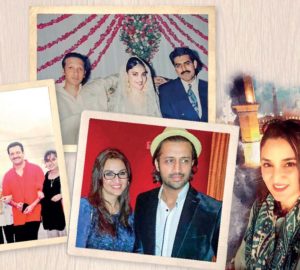Journalist, writer and more recently publisher, Mehvash Amin reflects on both outward and inward journeys she has taken through the various stages in her life. In this personal memoir, she chronicles the time she spent as a scholar student in Paris where she discovered new things she loved eating, reading and doing; and where she learnt how to think, write and dream in French.
I love journeys. My career has also been one – always a writer, I worked in the suburbs of my true passion as an editor (Libas, Hello!Pakistan, T.Edit) while continuing to write and publish in my spare time. In 2017, though, I decided to journey further into the territory that I had always wanted when I started a publishing house, Broken Leg Publishing, and took out The Aleph Review, a yearly anthology of creative writing and art.
As a lover of both travel and literature, I have often felt how outward journeys into space and inward journeys into books can affect a person’s outlook. They send baby tentacles, new-born ideas, into one’s soul that incubate and mature with time. At least, all significant journeys and books do that.
One such journey was when I received a French Government scholarship to study at the Sorbonne, Paris, for my Licence es Lettres – Modern Letters. It was just after the interregnum in studies that occurred when the movement against Bhutto had grown strong enough for the government to shut down schools and colleges. That was a time when the out-and-out capitalism of the West was at least contested by an alternative philosophy, socialism, with Che Guevera as its handsome poster boy.
I was a sheltered young girl at a time when most girls did not sally forth into the larger world for education. Also, I was not just going to another place but into a different ethos birthed by a different language, French. The Anglo-Saxon world of English and American authors and ideas was left behind as I entered a largely unfamiliar construct where people talked differently, thought differently, ate differently, even cursed differently.
I had to stay in a scrummy temporary hostel housing both boys and girls where one was locked out at nine and could only access one’s things at six, when the doors opened again. All the while, I looked for lodgings near the oldest street in Paris, La Rue Mouffetard, learned to enjoy eating ‘lapin’, rabbit, which made its appearance in the various university restaurant menus (where one doled out one carnet, or token, worth four francs, for a pretty decent three-course meal), rubbed shoulders with students from all over the world and tore between various campuses to register for my preferred subjects with my new best friend, a Yugoslav called Vera Kneciviz.
Did I change? How could I not, with the heady freedom of living a student life in the most beautiful city in the world (they say only millionaires and students can afford to live in Paris), of meeting new people (one of whom, a Greek, lived with her boyfriend in a white flat where there were pictures of her sitting nude alongside her fully clothed grandma), of learning to use a unisex bathroom, of having to give presentations in French, of staying up as late as I wanted on weekends at the flat of a newly married friend from back home who is still my best friend, then walking home, laughing and singing, the next evening in a posse that included an Indian in a sari amidst other Pakistanis from back home?
The books I was reading changed me too, with Proust, Ronsard and Gerard de Nerval supplanting Dickens and Auden and Graham Greene. This was the year the Russians invaded Afghanistan, the year that Jean-Paul Sartre died. I ingested it all through my new French prism. So much so that I started dreaming in French, writing poetry in French…
I learnt to use the bank, pretty efficiently too. I found a very decent room at the Foyer Concordia that overlooked a romantic French restaurant, Chez Lena et Mimile, and watched smart people dine there while I slopped out veggies from a can in the communal kitchen and Antonio y Antonio, two Brazilians, stirred up something else. One Antonio was blond and wore a black cape and boots, while the other was dark-haired and less flamboyant, but both were achingly good-looking. I burnt my tinned food many times.
I have made numerous trips to Paris times since, but two summers ago I went looking for Concordia, in the Latin Quarter, very near the Pantheon and not too far away from Notre Dame. I knew it was near the spot where Pierre and Marie Curie had discovered radium. I asked old-timers serving at the tourist traps; my brother, who was with me, found the Curie spot but we couldn’t find the place where I had lived for a year. Hauntingly, we would end up at the Pantheon again and again, a stone’s throw away from Concordia. On the verge of giving up, I told my brother to look up the restaurant, pretty sure that it would have disappeared from the map many years back. But it was there! And it looked exactly the same.
We sat and had our evening meal there, while I looked hungrily at the window from where I had stared at the smart diners three decades ago. I thought of the ghosts of friendships pasts. I thought of my professors and my treks to the Centre George Pompidou, whose futuristic library I preferred to the classic Sorbonne one køb viagra.
And I thought of the day I was leaving Paris, so moved that I cried all the way to the airport. The year of living in Paris had changed me profoundly, and the changes still hang on, like obstinate barnacles that leech on to a sailing ship, to this day. Thank God for that.


